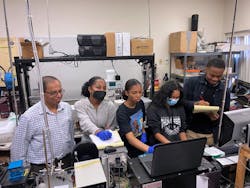NASA announces investments to advance alternative fuels and more
WASHINGTON - The National Aeronautics and Space Administration (NASA) announced 21 recipients of the agency's Small Business Technology Transfer (STTR) program. NASA notes that transitioning leading-edge research from the laboratory to transformative technology in the market poses significant challenges, particularly for small businesses, where the cost of failure is steep. NASA addresses this challenge through the STTR program, which offers support to small businesses and their research institution partners in the early stages of research and development across various technologies with broad potential.
Following successful proof of concepts in Phase I and subsequent negotiations, NASA recently announced that 21 small businesses will receive Phase II awards, each valued at up to $850,000. These funds will be allocated to the development, demonstration, and delivery of innovative technologies over the next 24 months, bringing these technologies closer to integration into NASA missions or commercialization.
In this phase, each small business collaborates with a research institution, such as a university or Federally Funded Research and Development Center. This collaboration is a requirement of the STTR program and sets it apart from its counterpart, the Small Business Innovation Research (SBIR) program.
Among the awardees is SSS Optical Technologies, LLC, based in Huntsville, Alabama, collaborating with Oakwood University. They plan to use the Phase II award to develop a protective coating that converts damaging UV radiation into energy to power solar cells. Another recipient, Air Company Holdings from Brooklyn, New York, is working with New York University to create a sustainable rocket fuel alternative through carbon dioxide hydrogenation technology.
Jason L. Kessler, program executive for NASA’s SBIR/STTR program, highlighted the program's role in supporting small businesses and their research partners by providing funding and guidance to de-risk their technologies. The goal is to enable each team to demonstrate the impact of their technologies within and beyond NASA.
These initiatives, exemplified by companies like Air Company Holdings, showcase the potential for transformative technologies not only for NASA's purposes but also for addressing challenges on Earth, such as greenhouse gas emissions in aviation or sustainable energy production on Mars.
